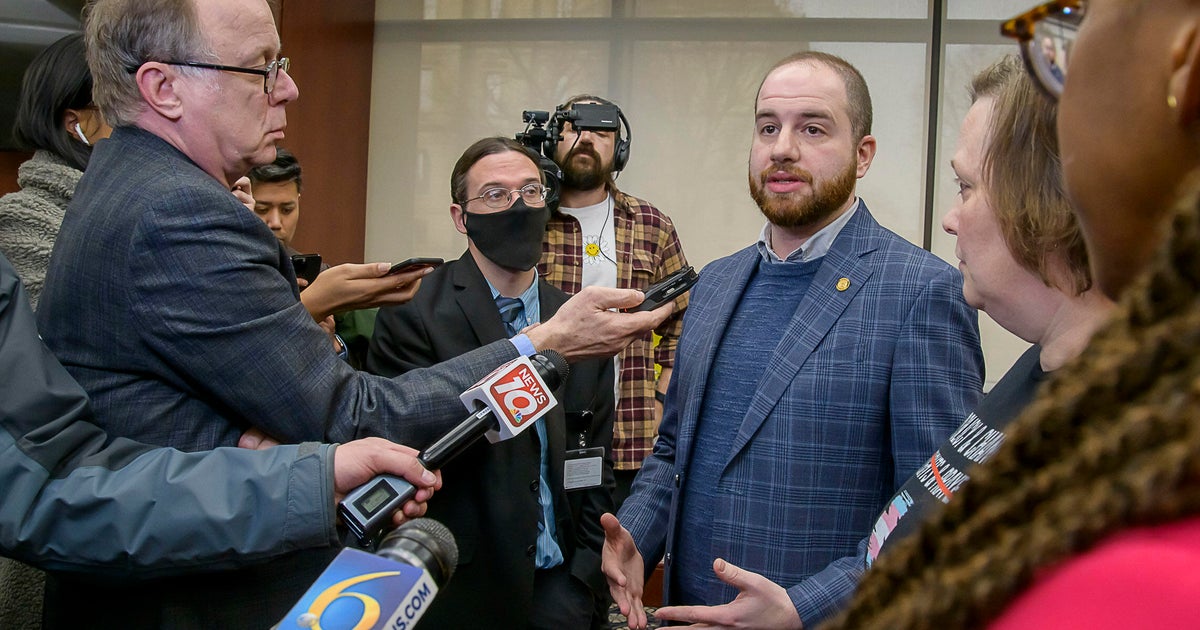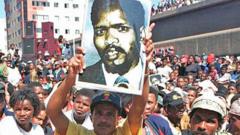Was Michigan Senator Jeremy Moss Targeted by a Bomb Threat?

Published: 2025-09-12 15:01:12 | Category: policy GNEWS Search
A recent bomb threat aimed at Michigan State Senator Jeremy Moss highlights an alarming trend of political violence and intimidation in the United States. This incident, which occurred on the same day that Michigan's Lt. Gov. Garlin Gilchrist reported a similar threat, underscores the growing concerns over safety among public officials and the deteriorating political climate. Both incidents signal a troubling shift towards aggression in political discourse, raising questions about the implications for democracy and civil engagement.
Last updated: 08 October 2023 (BST)
Overview of Recent Bomb Threats Against Michigan Officials
The threats against Moss and Gilchrist are not isolated events but part of a broader pattern of hostility directed at politicians, particularly those in the Democratic Party. Moss, who serves as the president pro tempore of the Michigan Senate, stated that the bomb threat at his residence was delivered through a "detailed and specific message." Law enforcement responded promptly, deploying bomb-sniffing dogs to ensure the area was safe.
Key Takeaways
- Senator Jeremy Moss and Lt. Gov. Garlin Gilchrist both received bomb threats this week.
- Moss described the current political climate as "untenable," citing increased hostility towards officials.
- Recent incidents reflect a rise in political violence, alarming officials and the public alike.
- Both Moss and Gilchrist are Democratic leaders with upcoming electoral ambitions.
- Challenges to public safety raise critical questions about the state of democracy in Michigan and beyond.
The Context of Political Violence
Political violence in the United States has escalated in recent years, with several incidents of aggression targeting both sides of the political spectrum. The references to recent shootings, such as the tragic case of Charlie Kirk, underline the severity of this issue. Kirk, a conservative activist, was shot and killed in Utah, an event that shocked many and prompted calls for increased safety for public figures.
Such acts of violence not only endanger the individuals involved but also create a climate of fear that can deter public participation in political processes. Moss's statement reflects a sentiment shared by many officials who feel increasingly vulnerable due to their roles. He remarked, "Democracy relies on the freedom to speak, debate, and disagree without fear of violent retribution," a principle that sits at the core of democratic governance.
The Political Landscape in Michigan
Michigan has been a focal point of political tension in recent years, particularly as it hosted a contentious election cycle and ongoing debates over key issues such as healthcare, education, and economic recovery. The state's leadership, including figures like Gov. Gretchen Whitmer and Lt. Gov. Garlin Gilchrist, has faced significant opposition and scrutiny, which can amplify the pressure on those in power.
As Moss prepares to run for Michigan's 11th Congressional seat in the upcoming 2026 elections, his experiences with threats and hostility may further shape his campaign strategy. The fear of violence can influence how candidates engage with constituents, press, and opponents, potentially leading to a more cautious approach in public discourse.
Implications for Democracy
The rise in bomb threats and other forms of political intimidation raises critical questions about the future of democracy in Michigan and the wider United States. When public officials feel threatened, it can lead to a chilling effect on political discourse. Elected leaders may become less willing to speak out on contentious issues, fearing for their safety and the safety of their families.
This environment of fear can also dissuade potential candidates from running for office, especially those from underrepresented backgrounds. If individuals perceive that political participation could endanger their lives or well-being, it can lead to a less diverse and dynamic political landscape.
The Role of Social Media in Political Hostility
Senator Moss highlighted the role of social media in exacerbating hostility towards public officials. The pervasive nature of online communication can amplify aggressive messages, making it easier for individuals to express their anger and frustrations without accountability. Moss reported a significant influx of "bigoted, aggressive messages" directed at his office and social media channels, a situation that many officials are increasingly facing.
The anonymity afforded by social media platforms can embolden individuals to express extreme views and threats, contributing to a toxic atmosphere that permeates political discourse. Addressing this issue requires a collective effort from social media companies, lawmakers, and civil society to promote respectful dialogue and mitigate harassment.
What Happens Next?
The incidents involving Moss and Gilchrist are likely to prompt discussions about the need for enhanced security measures for public officials. As both leaders prepare for their respective electoral campaigns, they may advocate for policies aimed at protecting individuals in political life. This could include increased funding for security and resources dedicated to monitoring threats against politicians.
Additionally, the political landscape may shift as officials and candidates respond to these threats. We may see a more significant emphasis on promoting civil discourse and addressing the root causes of political violence. The hope is that by confronting these challenges head-on, the political environment can become more conducive to respectful debate and collaboration.
Conclusion
The bomb threats against Michigan’s Senator Jeremy Moss and Lt. Gov. Garlin Gilchrist serve as a stark reminder of the volatility present in today’s political climate. As public officials grapple with safety concerns, there is a pressing need for society to reaffirm its commitment to democratic principles, ensuring that all voices can be heard without fear of violence. How can we foster a political environment that encourages open dialogue while safeguarding the well-being of those who serve? The path forward will require concerted efforts from all sectors to promote a culture of respect and understanding in politics.
#MichiganPolitics #PoliticalViolence #Democracy
FAQs
What recent incidents of political violence have occurred in Michigan?
Recently, Michigan officials, including State Senator Jeremy Moss and Lt. Gov. Garlin Gilchrist, received bomb threats at their homes. These incidents highlight rising tensions and hostility in the political environment.
How does social media contribute to political hostility?
Social media can amplify aggressive messages and threats towards public officials, often leading to a toxic atmosphere. The anonymity of online platforms allows individuals to express extreme views without accountability.
What are the implications of political threats for democracy?
Political threats can deter public participation, create a chilling effect on discourse, and discourage diverse candidates from running for office. This negatively impacts the democratic process and representation.
What measures can be taken to protect public officials?
Enhanced security measures, funding for protective resources, and promoting civil discourse are essential steps to protect public officials and create a safer political environment.
What role do elected officials play in addressing political violence?
Elected officials can advocate for policies that promote safety and respect in political discourse, as well as engage in dialogue that encourages understanding and cooperation among differing viewpoints.



